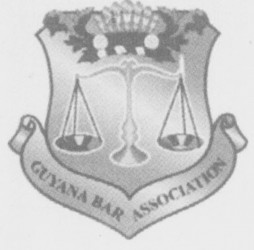Rule V of the Code of Conduct contained in the Fourth Schedule to the Legal Practitioners Act requires that an “attorney-at-law shall not accept a brief in a matter or field in which he does not have the requisite expertise, knowledge, skill or ability to effectively and properly represent the interest of his client.” That is a huge requirement that if applied strictly would have huge implications for most sole practitioners.
 While the standard of legal education in the Caribbean is quite high, a law degree and two years at one of the regional law schools hardly equips the student for the variety and complexity of matters which confront the legal profession on a daily basis. Recognising this, the legal profession has made Continuing education for professionals, sometimes referred to as Continuing Professional Education (CPE) or Continuing Professional Development (CPD), a mandatory requirement for attorneys-at-law.
While the standard of legal education in the Caribbean is quite high, a law degree and two years at one of the regional law schools hardly equips the student for the variety and complexity of matters which confront the legal profession on a daily basis. Recognising this, the legal profession has made Continuing education for professionals, sometimes referred to as Continuing Professional Education (CPE) or Continuing Professional Development (CPD), a mandatory requirement for attorneys-at-law.
Mandatory CPD has been around in some cases for decades in the more developed countries while in developing countries CPD is of more recent origin. Guyana is once again an exception, with neither voluntary nor mandatory CPD. It is an omission of which the Bar Association is acutely aware and which it has sought in a modest way to address by arranging seminars and lectures for attorneys. Without any mandatory requirement those events have been poorly attended. That is not a healthy situation for the profession or the country.
Indeed, the International Bar Association (IBA), representing Associations and Law Societies in close to two hundred countries, last year issued a Policy Guideline IBA Policy Guidelines for Training and Education of the Legal Profession in which it all but made CPD a general rule for all its member associations and societies. Guyana has a pending membership application to the IBA. The Guideline states, inter alia:
“1. It is an important task of the legal profession when serving their clients in a modern democratic society under the Rule of Law to use and modernise centuries-old legal doctrines in the ever changing globalised social and business environment which requires a constant renewal of the knowledge of the lawyers and it is a personal responsibility of every lawyer to update and renew his/her knowledge in the framework of a lifelong learning process to be able to use the new legal doctrines and technics and being able to tackle the ethical/deontological and technical challenges.
“2. The Bar Associations and Law Societies as professional organisations of the lawyers have primary responsibility to encourage their members to take part in continuing professional education and to ensure the availability of various training forms such as training events, lectures, conferences etc. to transfer such knowledge and to supervise whether their member satisfies their obligation in Continuing Professional Education.
“5. The Continuing Professional Education shall be made an obligation of every member of the legal profession ….”
So vital is CPD considered that in many countries no one who has not met the minimum number of CPD hours can continue to practise law. In Guyana’s case, that would require a change in the law and the regulatory framework under which attorneys-at-law operate. The Bar Association has raised this with Attorney General Mr. Basil Williams and is looking forward to such a change.
In anticipation of such a development, the Bar Association will be partnering with the Caribbean Law Institute managed Improved Access to Justice Project (IMPACT Justice) to host a Lecture for members of the legal community on Continuing Legal Professional Development – the Jamaican Experience. The venue is the Guyana Pegasus and the lecture will be delivered by Michael Hylton O.J., Q.C., an Attorney-at-Law with a distinguished career in both the private and public sectors.
A graduate of the University of the West Indies and the Norman Manley Law School, Mr. Hylton spent the first 24 years of his professional life at Myers Fletcher and Gordon, a Jamaican law firm. His experience ranges from service as Solicitor General of Jamaica, Chairman of the General Legal Council, the Caribbean Financial Action Task Force, the Financial Services Commission, and the Jamaica Civil Aviation Authority.
Mr. Hylton is an engaging speaker and the Bar Association extends this invitation to all attorneys-at-law, judges and other interested persons to attend and participate in the Lecture. It is an opportunity not to be missed.



